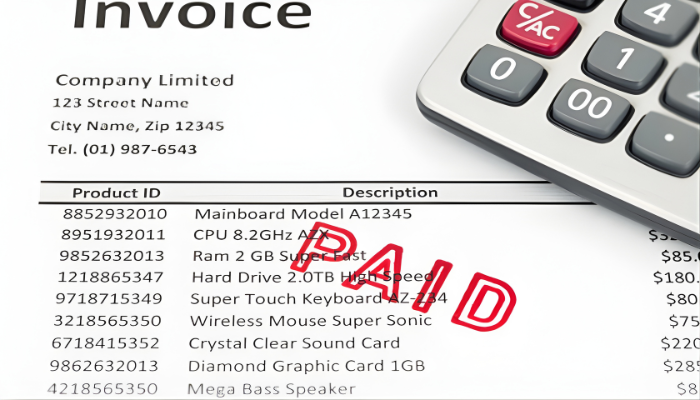
Expanding a business into new markets is both an exciting and challenging endeavor. Whether branching into new geographical territories or diversifying product lines, the financial implications can be significant. Managing cash flow effectively becomes crucial as upfront expenses can quickly accumulate. This is where factoring comes into play as a strategic financial tool.
Factoring, simply put, involves selling your accounts receivable to a third party (a factor) at a discount, in exchange for immediate cash. This method not only accelerates your cash flow but also transfers the burden of collecting receivables to the factor, allowing you to focus on core business strategies—such as market expansion.
This article will explore how leveraging factoring can support your business as it steps into new markets, ensuring you have the working capital needed to seize growth opportunities without straining your finances.
Understanding of the Basics of Factoring and Types
Factoring is a strategic financial tool that helps businesses convert their accounts receivable into immediate cash. This process not only aids in better cash flow management but also reduces the administrative burden associated with collections.
Here’s how it typically works, followed by an explanation of the different types of factoring available:
Factoring Process
Invoice Creation
- Process: When goods or services are delivered, your business issues an invoice to the customer, outlining the amount owed and the terms of payment, typically due within 30 to 90 days.
- Benefit: Creating invoices is fundamental for revenue tracking and sets clear payment expectations with your customers.
Sale to Factor
- Process: These invoices are then sold to a factoring company at a discount. The factor quickly advances a substantial portion of the invoice’s value—commonly between 70% and 90%—within a few days of the transaction.
- Benefit: This immediate infusion of cash improves liquidity, enabling your business to meet operational costs without waiting for customer payments. This is particularly crucial for maintaining continuity and stability in your cash flow.
Balance Payment
- Process: The factor undertakes the responsibility of collecting the payment from your customers. Upon successful collection, the factor pays you the remaining balance of the invoice, after deducting their fees and the previously advanced amount.
- Benefit: This offloads the burden of debt collection from your business, allowing you to focus on core activities while also mitigating the risk associated with customer non-payment.
Types of Factoring
Recourse Factoring
- Description: In recourse factoring, the business must buy back any invoices that the factor is unable to collect payment on. This type of factoring usually involves lower fees because the risk of non-payment is retained by the business.
- Suitability: This option is more suited for businesses that have established relationships with their customers and a good understanding of their payment behaviors, as it involves a lower cost but higher risk.
Non-Recourse Factoring
- Description: With non-recourse factoring, the factor assumes the risk of non-payment by the customers. If a customer fails to pay the invoice, the factor absorbs the loss.
- Suitability: This is beneficial for businesses entering new markets or dealing with customers whose creditworthiness is uncertain. Although it costs more, non-recourse factoring provides peace of mind and protects against potential bad debts.
Choosing the Right Type of Factoring

The decision between recourse and non-recourse factoring should be based on your company’s financial stability, risk tolerance, and the creditworthiness of your customers. Businesses that are more risk-averse or those expanding into new, unfamiliar markets may find non-recourse factoring more attractive despite the higher cost. It offers a way to manage credit risk effectively while still benefiting from improved cash flow.
The Role of Factoring in Supporting Market Expansion
Expanding into new markets typically requires a substantial financial commitment. From marketing and product localization to establishing new supply chains and staffing, the costs can quickly accumulate. Factoring can play a pivotal role in alleviating these financial pressures by providing immediate access to working capital. Here's how factoring supports market expansion:
Enhanced Cash Flow: By converting sales on credit terms into immediate cash through factoring, businesses can maintain a steady cash flow. This is crucial when funds are needed upfront for expansion activities like market research, marketing campaigns, and the setup of new operational facilities.
Risk Mitigation: Expanding into new markets often involves uncertainty, especially when dealing with new customer bases whose creditworthiness might be difficult to assess. Non-recourse factoring can be particularly beneficial here, as the factor assumes the credit risk. This arrangement protects your business against the risk of non-payment, allowing you to focus on growth rather than debtor management.
Flexibility in Financing: Factoring provides a more flexible alternative to traditional loans or equity financing. Since factoring lines can increase with your sales volume, they naturally align with your business growth. This flexibility is ideal for businesses in fast-paced or seasonal industries planning to enter new markets.
Focus on Core Business Activities: With the factor handling accounts receivable management, your business can redirect resources that would have been spent on collection efforts towards critical expansion activities. This can include everything from developing new product lines to enhancing customer service in new regions.
Speed of Access to Funds: Unlike traditional loans, which may involve lengthy approval processes, factoring provides quick access to funds. This speed can be a critical advantage when opportunities for expansion arise suddenly, requiring swift action to capitalize on them.
By improving liquidity and reducing administrative burdens, factoring allows businesses to agilely maneuver through the complexities of market expansion, ensuring that financial constraints do not impede strategic goals.
How Factoring Empowers U.S. Businesses to Flourish

Discover the transformative impact of factoring through these real-world-inspired scenarios. Each story illustrates the strategic use of factoring to navigate financial hurdles and seize growth opportunities, showcasing the practical benefits for diverse industries across the U.S.
Tech Startup's Strategic Leap Forward
Story: Imagine a small tech startup in Silicon Valley with a revolutionary healthcare app. The founders, a passionate team of innovators, face the daunting challenge of scaling up operations to meet the surge in demand across the nation.
Obstacle: With costly software upgrades and a need for aggressive marketing, the startup struggles with delayed payments from some of their biggest clients—large hospitals and clinics known for their extended payment terms.
Solution: They turn to non-recourse factoring, converting their slow-to-pay invoices into immediate cash. This strategic move not only cushions their cash flow but also shields them from the financial risk of non-payment.
Success: This injection of cash fuels their growth ambitions, enabling them to double their customer base and enhance product features, setting them on a path to becoming a leading software provider in the healthcare sector within a year.
Manufacturing Firm's Westward Expansion
Story: Picture a well-established manufacturing firm in Ohio known for its high-quality construction equipment. With aspirations to tap into the booming construction markets on the West Coast, they plan a bold expansion.
Obstacle: The firm needs upfront capital to build new distribution facilities, hire additional staff, and manage shipping logistics over greater distances—all while maintaining production for existing clients.
Solution: By choosing a combination of recourse and non-recourse factoring, the firm ensures a steady flow of working capital, balancing risk and reward as they finance their growth.
Success: Thanks to factoring, the firm successfully launches its West Coast operations, experiencing a significant increase in sales and establishing lasting partnerships with major construction companies in California and Washington.
Retail Chain's Online Revolution
Story: Envision a popular retail chain specializing in outdoor sports gear, with numerous stores across the Midwest. To adapt to changing consumer behaviors, they decide to launch an online store.
Obstacle: The transition to e-commerce requires substantial investment in digital marketing, IT infrastructure, and logistics. The challenge is intensified by the need to manage inventory across both physical and online platforms.
Solution: Factoring receivables from both in-store and online sales provides the necessary funds to support this digital shift, allowing them to act swiftly and efficiently.
Success: The new online platform is a hit, driving significant sales increases and expanding their customer base nationwide. Their successful pivot to digital becomes a model for other retailers in their sector.
These scenarios show how factoring can be a catalyst for growth, providing U.S. businesses with the agility to overcome financial barriers and seize potential market opportunities. Each example highlights the thoughtful application of factoring to support strategic business objectives, reinforcing the message that factoring is more than just a financial tool; it’s a stepping stone toward achieving broader business goals.
Factoring as a Keystone for Business Growth
As we've explored, factoring offers more than just an immediate boost to your cash flow. It's a strategic tool that can fundamentally transform how your business manages financial challenges, particularly when expanding into new markets or scaling operations. By alleviating cash flow constraints, factoring empowers businesses to maintain operational stability and pursue growth opportunities without the typical financial strain.
For businesses looking to expand, the flexibility and immediate liquidity provided by factoring can be crucial. Whether it's launching new products, entering new geographical markets, or simply managing day-to-day operations more efficiently, factoring provides a reliable and scalable financial foundation.
If your business is poised for growth but constrained by cash flow, consider how factoring can open new doors. With its ability to turn future revenue into immediate working capital, factoring might just be the key to accelerating your business's growth trajectory.
Ready to unlock your business’s potential with factoring? Contact Factor Funding today to explore how we can support your business expansion and operational needs with tailored factoring solutions. We’re dedicated to providing the financial tools and services that empower businesses like yours to thrive. Don’t let cash flow challenges hold you back—let us help you turn those invoices into opportunities. Discover the difference the right financial strategy can make.

















